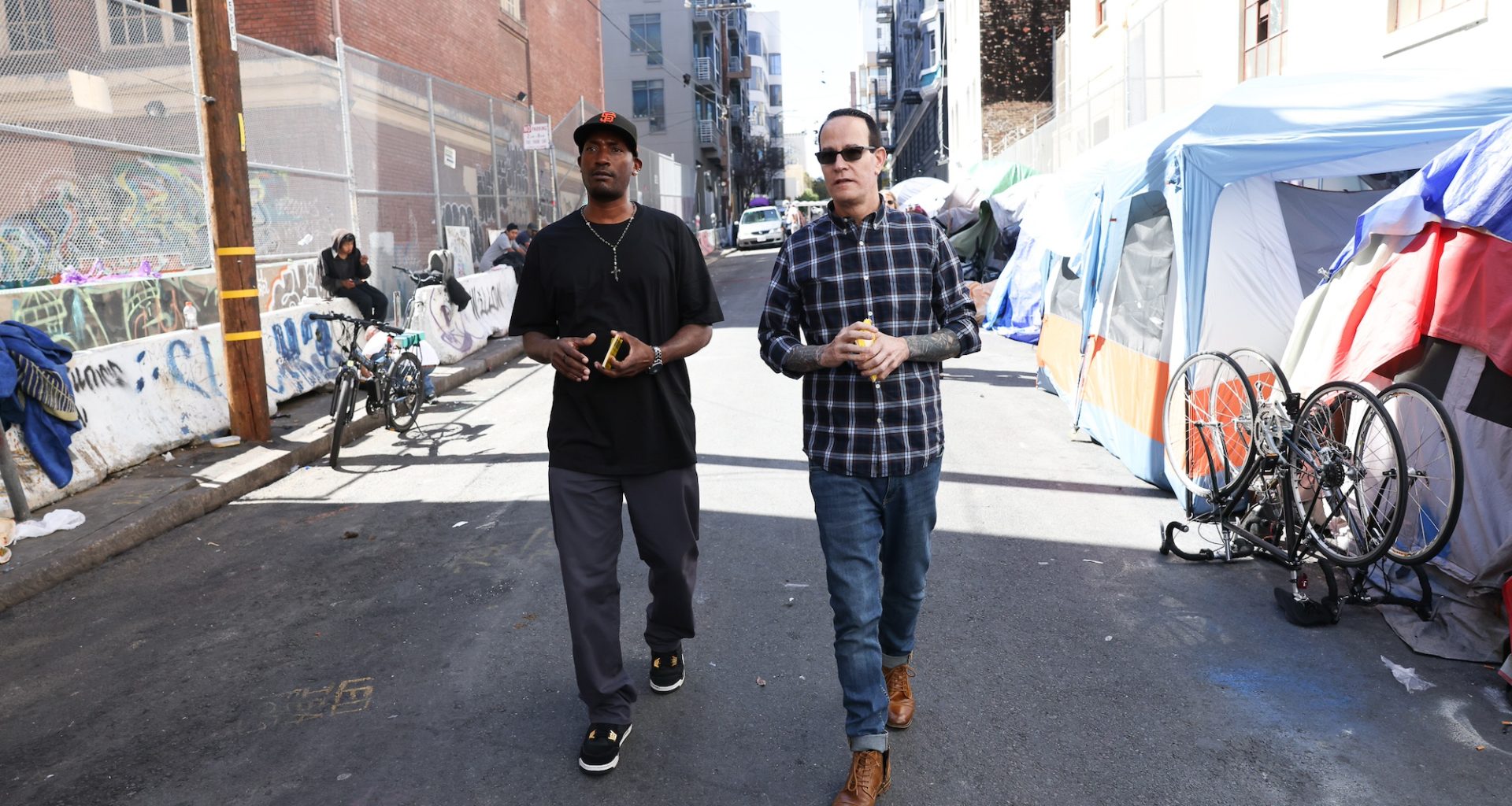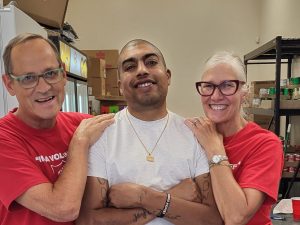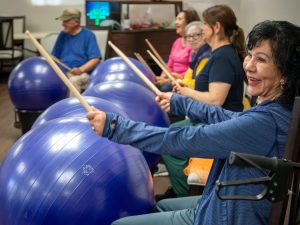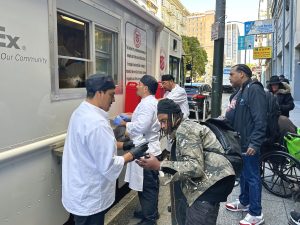The on-demand recovery-focused homeless initiative requires one thing: showing up.
Over the last decade, overdose deaths have surged nationwide as highly potent synthetic substances like fentanyl continue to flood the illicit drug market. In San Francisco, the crisis has spiraled even more drastically.
In fact, last year, San Francisco’s opioid rate rose to more than double the national average. What’s more—the city recorded 806 drug overdose deaths, more than any other year on record. Nearly 80 percent of all overdose deaths in the city last year involved fentanyl, which is about 50 times stronger than heroin. The statistics reflect a grim state of affairs that experts had predicted for months.
Officials point to a combination of pharmaceutical marketing, poverty, limited treatment options and underfunded behavioral health care programs. As the crisis has escalated, the city has doubled down on its efforts to promote Housing First and harm reduction policies.
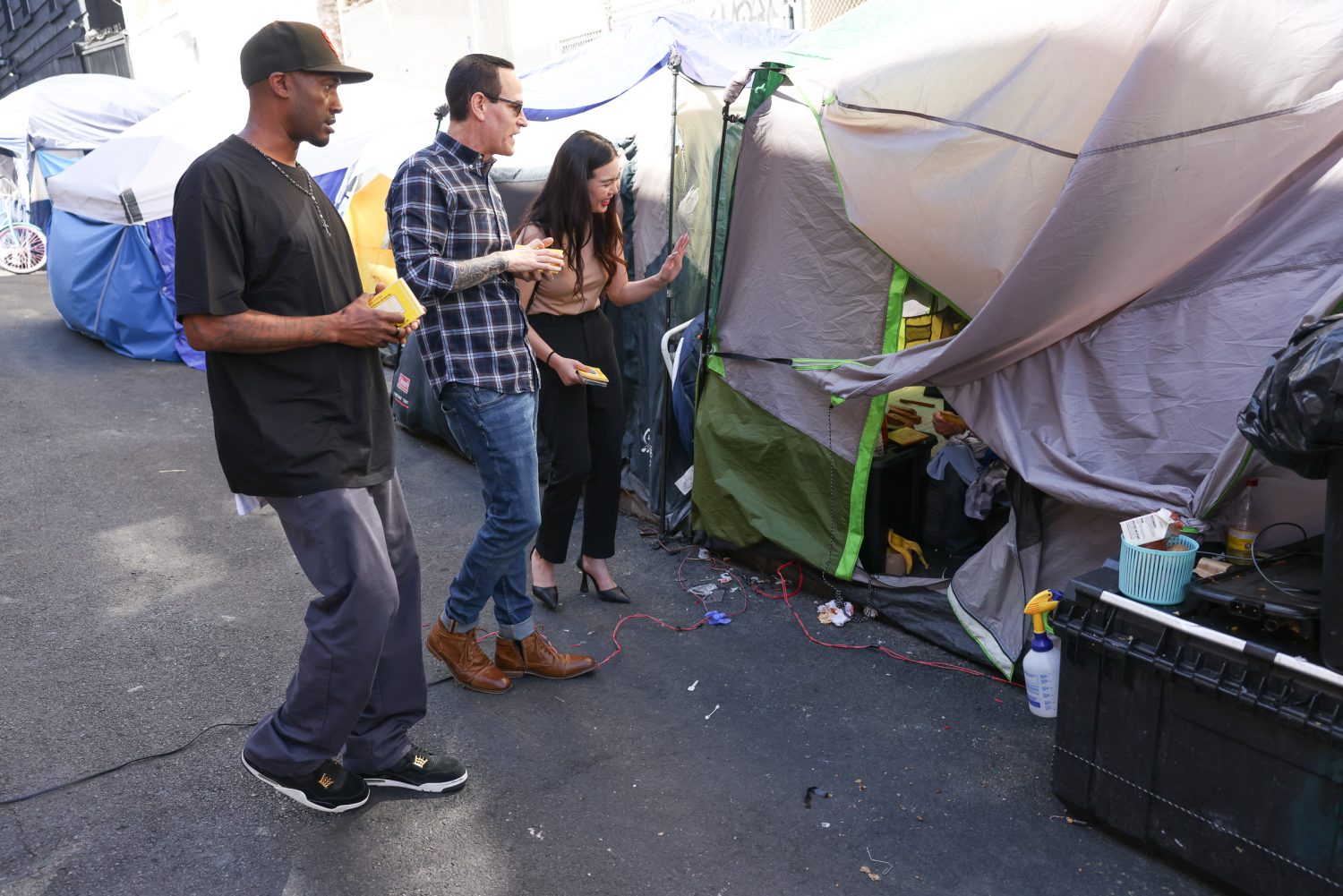
It’s in that climate that Steve Adami stepped in as the executive director of The Salvation Army’s The Way Out program in May 2023. While he believes those strategies have their place within the complex network of treatment, he said it’s important to invest in other strategies as well.
“This is more than a housing issue,” Adami said. “It takes 10 days to get treatment. It’s easier to get dope than it is to get treatment.”
That’s where The Way Out comes in. It’s an on-demand recovery-focused homeless initiative. People can enter the program six days a week, with plans for seven-day access soon. They receive stabilization services and addiction treatment right away at The Salvation Army Harbor Light Center. The process begins with detox, followed by six months of residential care based on proven methods, which is phase two.
After completing treatment, participants can move to the Joseph McFee Center, The Salvation Army’s supportive transitional housing program and the third and final phase in the model. They can secure housing for up to two years, all while receiving on-site services such as case management, career development and help reuniting with family members.
“When we started, we redefined the initiative as not a building or a program but a recovery system of care to address the drivers of housing insecurity, which are behavioral health coupled with economic disadvantage,” Adami said.
Adami has a personal history with addiction. He cycled in and out of jails and prison for over two decades. During his time behind bars, Adami successfully got clean. Once he was released, he earned a master’s degree in public administration with a focus on public policy and criminal justice. His journey led him to serve as the reentry division director at the San Francisco Adult Probation Department (SFAPD). He’s designed and implemented more than 60 re-entry programs that are operational today.
With The Way Out, it was important to Adami that The Salvation Army “de-bureaucratize” the treatment process as much as possible. After all, gaining access to city-operated detox and treatment programs often means navigating a complex process with frustratingly long wait times. Individuals seeking assistance typically undergo an assessment and referral procedure that can drag out over several weeks. Unfortunately, during this waiting period, many individuals abandon their pursuit of help.
“We don’t discriminate at The Way Out. We want people to have their lives back. “
Steve Adami, Executive Director of The Way Out
“Our goal is to remove all barriers to get people into treatment,” he said. “All they have to do is show up. We take care of the paperwork once they’re inside. We do their assessment inside. We connect them to methadone, mental health beds—whatever they need.”
Joshua Brathwaite, a San Francisco native, is among those who showed up at The Salvation Army. He entered the program on a court order after an incident in Concord, California, in 2018.
“I was drinking and I thought it would be a good idea to get behind the wheel in broad daylight and take some Xanax,” Brathwaite said.
That’s when a firearm was discharged out of the vehicle. Brathwaite avoided prison time for the incident. His friend, who was riding shotgun, landed in prison for three years.
“That was the wake up-call,” he said. “That wasn’t even luck. That was a message from a higher power saying I needed to get my [stuff] together, real fast. I didn’t want his time in prison to be in vain, so I got clean.”
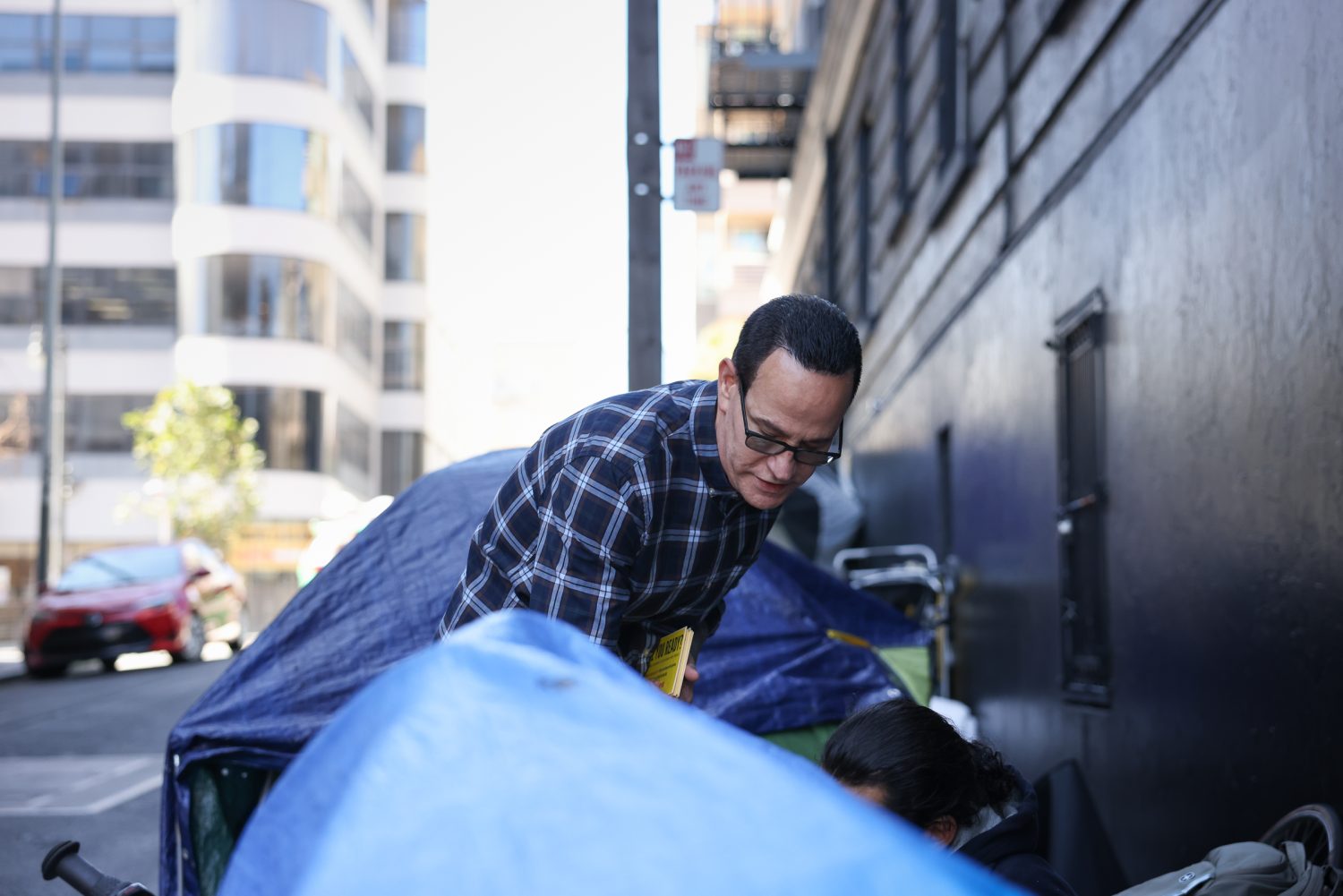
Brathwaite graduated from the six-month Harbor Light program in July 2023, and subsequently moved into the Joseph McFee Center to continue his recovery. Since then, he’s completed a culinary job training program and joined the staff at Harbor Light as a program assistant. He’s even started volunteering with the onsite food pantry, and crashed The Way Out’s softball team.
“I’m making sure my whole day is filled with something productive and there’s not too much idle time for me to get into my head and my feelings,” he said. “Hopefully, I get to help someone now who was in the same position I was.”
A few months ago, Brathwaite’s friend contacted him after getting released.
“I always felt guilty that I didn’t go to prison and he did. I used to lose sleep over it. But when I talked to him he said because of my recovery, and me being in the program at The Salvation Army, he just said, ‘Just keep doing what you’re doing,’” Brathwaite said. “That was such a weight lifted. It made me appreciate my life more and what I have going for myself now. It reminded me that I’ve seen the dark side, and I don’t want to go back to that side.”
The Salvation Army is hoping to prove the merit of The Way Out model with more success stories like Brathwaite. In which case, The Way Out’s three-phase model has the potential to play a more significant role in the city’s response to the addiction crisis. The program is already garnering wide-ranging support.
Garry Tan, venture capitalist and CEO of Y Combinator, said The Way Out is one of the city’s most important programs. “It opens the path to drug treatment, recovery and a human flourishing that breaks the cycle of addiction and abuse that has taken hold of the most beautiful city in the world,” Tan said.
Marc Benioff’s Salesforce donated an initial $1 million to the program. And Daniel Lurie, a mayoral candidate for San Francisco, has publicly voiced his support.
“We don’t discriminate at The Way Out,” Adami said. “We want people to have their lives back. Part of that is being accountable for your actions. But people can overcome addiction. We have thousands of people who have reclaimed their lives, who are contributing members of the community.”
Do Good:
- See how The Salvation Army fights homelessness.
- Subscribe to the Do Gooders Podcast in your favorite podcast player now to be notified when an interview with Steve Adami drops March 11. Listen in as he shares more of his own story of recovery and his work now as Executive Director of The Way Out, a recovery-focused homeless initiative of The Salvation Army.









